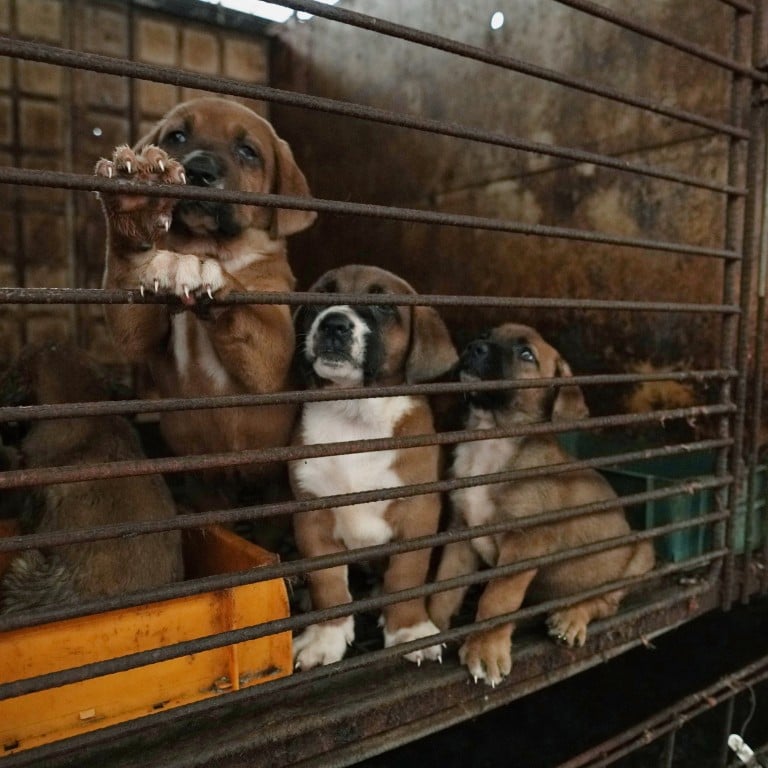
South Korea to ban dog meat consumption, trade from 2027
- South Korea’s parliament passed a bill on Tuesday making the slaughtering, breeding, trade and sales of dog meat for human consumption illegal
- Efforts to ban the practice had faced fierce resistance from the dog meat industry, even though surveys show most Koreans don’t eat dog meat any more
The bill would make the slaughtering, breeding, trade and sales of dog meat for human consumption illegal from 2027 and punish such acts with prison time.

Eating dog meat was once seen as a way to improve stamina in the humid Korean summer. But it has become a rarity – now eaten mostly by some older people – as more Koreans consider dogs family pets and as criticism of how the dogs are slaughtered has grown.
Activists say most dogs are electrocuted or hanged when slaughtered for meat, though breeders and traders argue there has been progress in making the slaughtering more humane.
South Korean farmers clash with police over proposed dog meat ban
Support for the ban has grown under Yoon, an animal-lover who has adopted numerous stray dogs and cats with first lady Kim Keon-hee, also a vocal critic of dog-meat consumption.
Proposed by the ruling party, the bill gained the nod from parliament’s bipartisan agriculture committee on Monday for a vote in the 300-member, single-chamber assembly.
Once signed into law, the legislation will take effect after a three-year grace period. Breaking the law will be punishable by up to three years in prison or 30 million won (US$22,900) in fines.
Activists welcomed the bill, calling it “history in the making”. “We reached a tipping point where most Korean citizens reject eating dogs and want to see this suffering consigned to the history books, and today our policymakers have acted decisively to make that a reality,” JungAh Chae, executive director of Humane Society International Korea, said in a statement.
“While my heart breaks for all the millions of dogs for whom this change has come too late, I am overjoyed that South Korea can now close this miserable chapter in our history and embrace a dog friendly future.”
While my heart breaks for all the millions of dogs for whom this change has come too late, I am overjoyed that South Korea can now close this miserable chapter in our history
In a survey released on Monday by Animal Welfare Awareness, Research and Education, a Seoul-based think tank, more than 94 per cent of respondents said they had not eaten dog meat for the past year and about 93 per cent said they would not do so in the future.
Previous efforts to prohibit dog meat have failed in the face of industry protests, and the bill seeks to provide compensation so that businesses can move out of the trade.
The agriculture ministry has estimated that as of April 2022, some 1,100 farms were breeding 570,000 dogs to be served at around 1,600 restaurants.
The Korean Association of Edible Dogs, a coalition of breeders and sellers, said the ban will affect 3,500 farms raising 1.5 million dogs as well as 3,000 restaurants.
Additional reporting by Associated Press, Agence France-Presse

